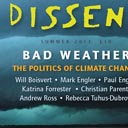
As our television screens toggle between pundits squabbling over Obamacare’s insurance rules and ads for erectile dysfunction remedies, another health care battle rages in village clinics and corporate boardrooms. Multinational brands and technocrats are concocting supranational policies to hold poor patients hostage to pharmaceutical markets across the Global South through elaborate intellectual property schemes in international trade.

In the Fall 2013 issue, Hans Kundnani wrote about the German Social Democrats’ struggle to challenge Angela Merkel’s approach to the Eurozone crisis. Read his update on the new grand coalition here, and read the original article here.

Once there was a golden age of democratic capitalism. Chastened by the Great Depression and cowed by vigorous labor movements, a generation of leaders forged a new type of political economy in the aftermath of the Second World War that united economic growth with robust welfare regimes. Then in the 1970s something went wrong. At least, that is how the story goes.

European Muslims were once embraced by the left as a natural ally, but the relationship has become increasingly fraught. If the parties of the left don’t want to lose voters to new religious formations, they must create the conditions for people of faith to feel more comfortable in national institutions. There is room for more complex answers than those offered so far.

Since the Clinton administration, we have seen growing concern about income inequality, the clear failure of TANF to work as a safety net program, and that effectively ending welfare has not stopped Republicans from mounting new attacks on the poor. All of this indicates the urgency of reopening the welfare debate and initiating a public discussion that challenges archaic conservative ideas about poverty.

A Small World is a self-consciously exclusive social network aimed at a certain class of internationals—referred to interchangeably as “global nomads,” “citizens of the world,” or, more frequently, the “global elite.” The site reveals that modern cosmopolitanism has been a largely market-driven phenomenon, designed for capital, not citizens, to become “of the world.”

Early twentieth-century skeptics were rightly suspicious of plutocrats deciding how to improve the human condition and then paying to translate their notions into public policy. Now it’s time for a new progressive era—complete with muckrakers and trust-busters to cast a critical eye on big philanthropy.

As revolt continues to shake the globe, as images of mass protest and riot become the norm on the evening news, they become a part of the global consciousness and, as such, produce a new series of images for Hollywood to attempt to capture. But in putting a flaming White House in every subway station in America, not to mention in dozens of nations abroad, what desires could Hollywood unleash?

Until 1989, before the start of the armed rebellion against Indian rule, foreign and Indian visitors flocked to the valley. In 1987, according to a government survey, Kashmir welcomed 700,000 tourists. Three years later, as violence gripped Kashmir, the number fell to just 6,000. Those who survived on tourism ate their savings and scraped together different work.

Log in to download the EPUB or MOBI edition.

Facebook CEO Mark Zuckerberg claims that his new lobbying group, FWD.us, “can change everything.” But like Facebook’s other top-down “revolutions,” FWD conflates the leadership of the powerful with transformation for all, and efficient corporate recruiting with improving the lives of immigrant workers.
This past July, in the middle of a summer of political discontent, there occurred a small reason for hope. In seven American cities, thousands of men and women who toil at fast-food chain restaurants picketed in loud and energetic one-day …
Fear Itself: The New Deal and the Origins of Our Time by Ira Katznelson Liveright Publishing, 2013, 720 pp. Few topics have been covered in such depth by academic and popular authors as the topic of
If there are some things in life that should not be bet on, the question of who will next win the Nobel Peace Prize somehow feels like it should be among them. Internet bookmakers, however, will place odds on almost …

As infamous pick-up artist Roosh himself admits in “Don’t Bang Denmark,” Nordic social democracy doesn’t support his kind.



















